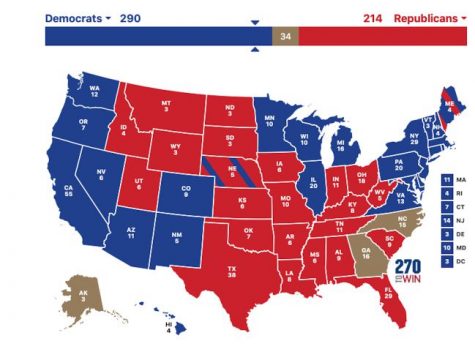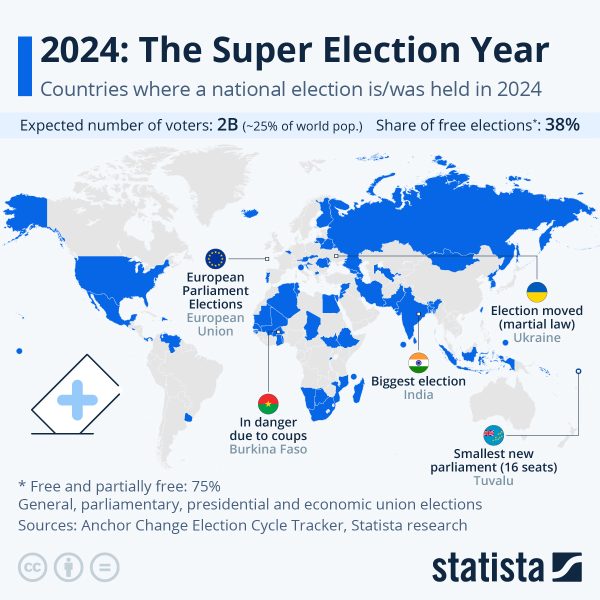The Truth About the Electoral College
November 19, 2020
The Electoral College. It’s confusing to most. A lot of people don’t really know how it works. It’s okay. I don’t quite understand it either, so let’s talk about some of the pros and cons.
Pros
-
 Election results are easier to sort out state by state
Election results are easier to sort out state by state
The Electoral College allows each state to individually count their votes. This makes it easy to know the results. Without this type of system, things may look different in the way that votes are counted. The Electoral College allows the results to be organized.
-
Voting disputes are easier to solve
Problems like miscounted votes or potential fraud are easier to resolve. The Electoral College is structured in a way that each state counts its own votes, and that is where the votes stay. Without this system, the altercations that I mentioned may be harder to trace back to the root of the problem and ultimately solve.
-
Candidates need to appeal to all states
There are “swing states” in all regions of the country. Important issues and values may look different for people living in Arizona versus Pennsylvania, so candidates must broaden their appeal in order to gain those votes.
Cons
-
Candidates can win the popular vote but lose the electoral vote, ultimately losing the election
This has happened five times, and some people believe it to be a threat to our democracy.
-
Votes do not have equal value
Each vote cast in Wyoming is worth 3.6 times as much as the same vote cast in California. The efforts to give states equal representation and influence aren’t mathematically exact. We end up with over representing sparsely populated states and under representing heavily populated states.
-
Candidates tend focus on the the swing states and ignore the non-swing states
There are about thirteen states in which candidates tend to spend their time and money campaigning. These states are ones that have heavy influence on the outcome of the election. Issues specific to these states get more attention drawn to them because they become debate points in the fight for those votes.
-
There are faithless electors
This happens rarely, but there are examples of electors who voted against the popular vote in their states. In 2016, five Clinton electors and two Trump electors actually submitted votes for other candidates.
At this point in time, it looks like Joe Biden has won both the popular and electoral vote, but only time will tell as votes are recounted and the electors go to place their votes on December 14th. Your opinion on the benefit or damage that the Electoral College creates for the United States may shape the fate of your favorite candidate.
Sources:
https://www.ncsl.org/research/elections-and-campaigns/debating-the-electoral-college.aspx
https://www.nationalaffairs.com/publications/detail/in-defense-of-the-electoral-college
https://www.procon.org/headlines/the-electoral-college-top-3-pros-and-cons/
https://www.google.ca/amp/s/m.huffpost.com/us/entry/12891764/amp









Susan Anthony • Nov 19, 2020 at 7:07 pm
The National Popular Vote bill is 73% of the way to guaranteeing the majority of Electoral College votes and the presidency to the candidate who receives the most popular votes in the country.
The bill changes state statewide winner-take-all laws (not mentioned in the U.S. Constitution, but later enacted by 48 states), without changing anything in the Constitution, using the built-in method that the Constitution provides for states to make changes.
It requires enacting states with 270 electoral votes to award their electoral votes to the winner of the most national popular votes.
All votes would be valued equally in presidential elections, no matter where voters live.